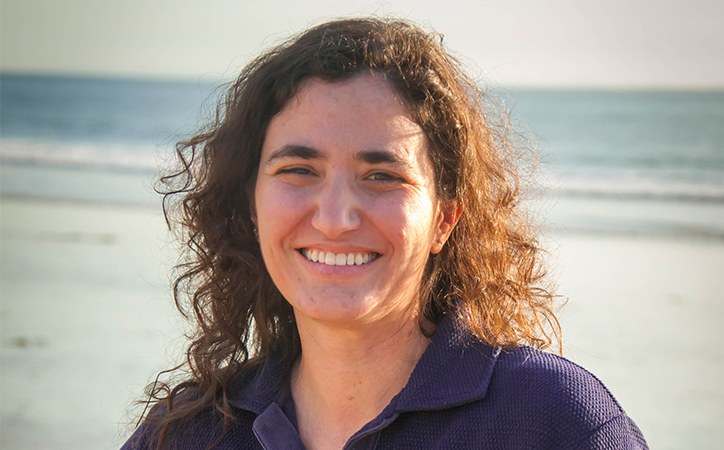
Although Allison Wolf grew up in sunny Los Angeles, she opted to trek to the East Coast for college. While there, she earned a Bachelor of Arts degree in philosophy from Brandies University in Massachusetts. After that, she split the difference, moving to Michigan to obtain her Masters degree and then a Ph.D. – also in philosophy – from Michigan State University. During graduate school Allison worked as an adjunct professor, which she says, “was a wonderful experience with great students and colleagues.”
Allison then remained in the Midwest, but moved to Iowa, to work as an assistant professor at Simpson College. And she’s been moving up the ranks ever since. While there, she’s received tenure and a promotion to associate professor. And, just recently, Allison was promoted to full professor.
Along with Allison’s passion for philosophy she says, “I am very committed to helping students increase their philosophical abilities and knowledge by studying abroad internationally.” Prior to her tenure at Simpson, she assisted on a study abroad program in Costa Rica. And, while in her current role, she’s led courses in ethics of globalization in Costa Rica and most recently, led a study abroad semester in Argentina.
“I look forward to expanding the study abroad offerings of the philosophy department for years to come,” she says.
What were you like as a college student?
Well, I was very studious but not as curious and open-minded as I have come to be. I wish I had taken more advantage of the fantastic opportunities that I had at my disposal.
Did you have an internship while you were in college?
For one semester, I did an unpaid, unofficial internship at the Journal of Bioethics, Law and Society at Boston University.
Between teaching and research, plus your outside-of-work life, how do you organize your day?
Great question! I always begin my day by working out, usually at 5 a.m. After that, I come home around 6:30 and get myself and my two young children ready for school and daycare by 8. Then, usually, I am either off to school to teach or I come home to do research all morning. This is then followed by meetings and office hours in the afternoon before picking up my son from school. After a bit of time with him, I do class preparation and grading – taking a break for dinner and hanging with the kids for a couple hours around 6 p.m. Then, I will usually do more grading or research!

Do you feel that you have a good work/life balance?
Actually, I think I do. I am very lucky to have a job where I have a lot of control over my schedule, which allows me to make sure I can fit in time for exercise, kids and fun, while also being able to do work in the evenings and on Sundays.
What is an accomplishment that you’re particularly proud of?
Aside from being awarded full professor at age 40, I think I am most proud of receiving an award for outstanding teaching as a graduate student, as well as winning the Distinguished Junior Faculty Award from Simpson after teaching there for five years.
What is your area of focus right now, in terms of your research?
Right now I am working in ethics of childbirth. My research is very focused on reforming maternity care in the United States so that more women have satisfying and meaningful experiences, regardless of how they give birth. In addition, I am starting a new project on global justice and Central American-Mexican-U.S. immigration, as well as working on some new things on teaching. So, I am keeping busy with a wide variety of projects!
How do you feel about serving as a mentor to so many of your students?
It is one of the most rewarding and meaningful parts of my job. I am so proud of my students – past and present – some of whom are working, others are in excellent graduate schools, and others will do things even more impressive than I could have ever done. It is such a wonderful thing to be part of students finding themselves and reaching their full potential. I absolutely love it!

What advice would you give to women trying to succeed who face sexism or other challenges because of their gender?
First, trust your instincts. You are smart and you know when you are facing things that men do not. You are not crazy.
Second, use your friend networks. I am so fortunate to have a fabulous and accomplished group of friends, especially from graduate school. They have always been so supportive of my career and I of theirs. For example, we still read one another’s work and give suggestions. Your friend networks will save you professionally and emotionally.
Third, always support other women. We need one another, and we should never fall for traps that pit us against each other.